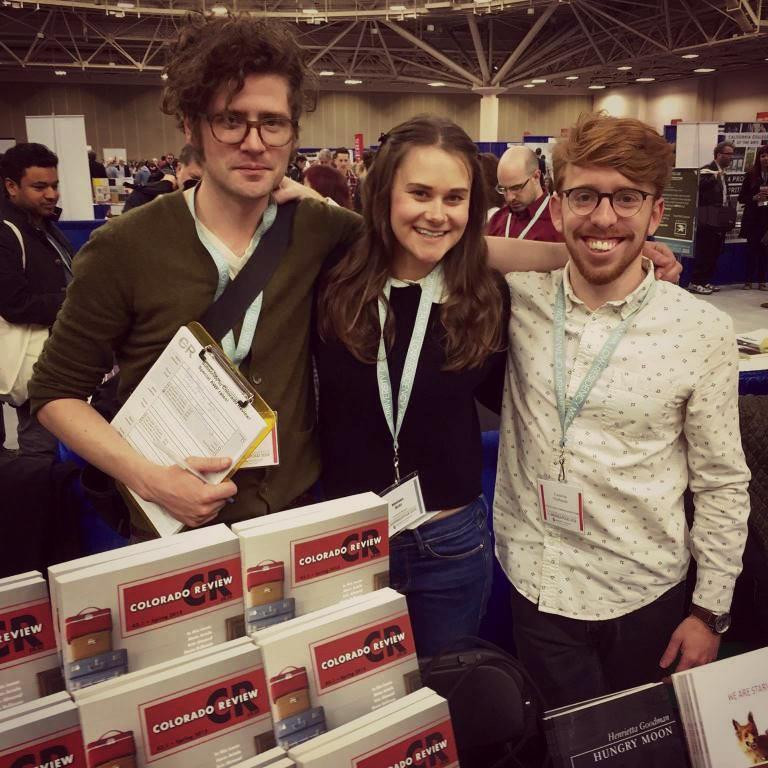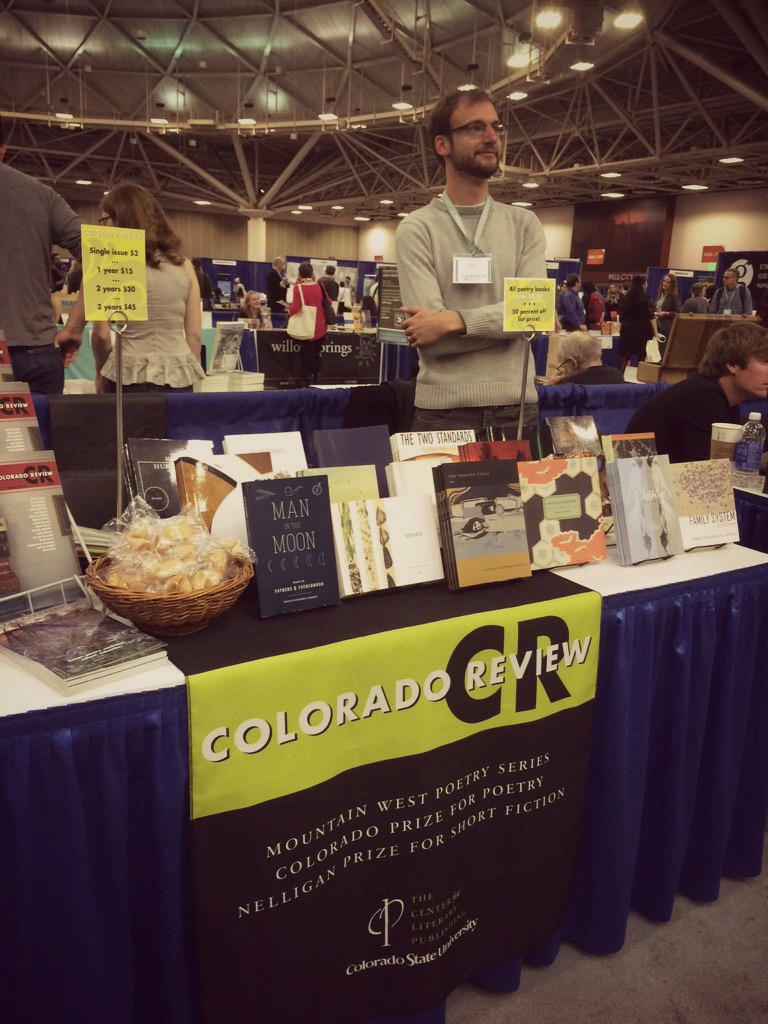Need to Recharge, Renew, Re-energize? Perhaps a Conference Is the Answer.
By Marie Turner
MFA English: Fiction


There is a line in Tolkien’s Fellowship of the Ring that sticks with me: “I feel thin, sort of stretched, like butter scraped over too much bread.” I’ve always loved this analogy, and it rather astutely describes how I have been feeling lately. Not that I have anyone but myself to blame; I have said yes to too much lately, put too many disparate items on my plate, and, I have to admit, started to feel the strain. Months ago, I was generously offered supplemental travel funding from the Center for Literary Publishing, the English Department, the College of Liberal Arts, and the Office of the Vice President of Research, so I booked my trip to the Association of Writers and Writing Programs (AWP) conference. At the time I thought: “Sure, why not? New experiences ho!” But, not surprisingly, when the conference finally rolled around, I felt more like: “Really, self? You thought this would be a good week to pack up and leave two jobs and grad school behind? Nice planning.” Instead of being excited about it, I felt tired, struggling to remember why I’d said yes to this (and, honestly, everything else—why, again, had I thought any of this was a good idea?).
Only on the plane, loading my AWP phone app with events, did I begin to understand the magnitude of the conference. More than 12,000 people go to this conference and have their choice of 550 readings, panels, and lectures to attend. The book fair features more than 800 tables representing presses, journals, and literary organizations. I don’t know why I’d assumed that it would be any less daunting than many of the scientific meetings I have attended, perhaps because my initial impression of the humanities crowd is that they are a kinder, more supportive, less masochistic bunch than the scientists. They wouldn’t drown themselves in hundreds of sessions and thousands of people all struggling to achieve similar goals. They just wouldn’t. My revised theory? We are all, every one of us, a little bit masochistic.
On all three days, in almost every time slot I double and sometimes triple booked myself. Everything just looked so damned interesting, and unlike the science circuses—where I have learned to scan session titles for keywords that tip me off to what may be painfully unnecessary to me or even more painfully over my head—at AWP I was just a doe-eyed newbie, game for and ready to say yes to anything. Publishing? Yes! Craft talks? Yes! Nerd novels? Yes! Reading and conversation with an author whose work I have worshipped for decades? Oh my god, yes! Bring it on! Are you sensing a pattern with me? This, in case you are curious, may be the mechanism by which a person comes to feel like butter scraped over too much bread.
I crammed in a ton, and much of it was great. I learned a lot, which, since I know almost nothing about the writing community and surrounding industry, wasn’t hard to do. Of course, as with any enormous production like this, there is great variation in the quality of talks. There were the ultra-prepared and those who obviously felt they could rely on their improvisational skills and charm. While the latter types were occasionally quite engaging, it was the exception. (Note to all of us: Unless you are exceptionally skilled at associative speaking, or extremely practiced in your subject matter, don’t assume that just because you have a train of thought that everyone else is on board.) Aside from the occasional opaque ramble, what I loved was that I found almost everything to be very accessible. Even in areas where I had next to no knowledge, the talks were straightforward, welcoming, and casual. This was definitely different from experiences I have had walking out of certain science sessions at meetings, where at day’s end I often feel like whatever intelligence I might have had has been crushed underneath someone’s boot heel. Not so at AWP. There, I left almost every talk feeling encouraged.
Strangely, my favorite of all the sessions I attended also brought out the most mixed and intense feelings I had at any AWP event. It was a panel called “Creative Writing as an Agent of Change” and featured speakers who were using writing and the teaching of writing to facilitate social improvements in underprivileged and marginalized groups. This was the only slot in three days that I didn’t double book. Seeing the title in the program lifted me out of my tiredness and reminded me why I had thought it would be a good idea, at thirty-seven, to go back to graduate school and try to fit that in with everything else that I do. It is because I believe that change can occur through nuanced and thoughtful communication and that writing is one way to give the voiceless a voice. And the session was amazing. One twenty-four-year-old woman spoke about the work she does teaching creative writing to poor children of minority groups, and her enthusiasm was so rich and earnest that I cried right there. I felt heartened. What was less heartening about this session, however, is that almost no one came. While I had to arrive early or claw my way into multiple craft talks, where people lined the walls and sat on the floor, here there were (I counted) only twenty people in the room. I left feeling a mixture of love, inspiration, sadness, and, yes, a little bit of anger too. Why the discrepancy in numbers?
In the days since the conference, I have thought about this experience again and again and am still not sure I understand it. Full disclosure: I began different draft of a blog post that focused exclusively on this session, and when I read back over it sounded so soap-boxy and self-righteous that I felt a little ashamed of myself and decided to refocus. But leaving it out entirely didn’t feel right either, didn’t do justice to what the conference was like and, maybe more to the point, what it did for me. Because, you see, what it did was renew me. It reminded me why I keep saying yes even when I am tired and frustrated and overcommitted. It reminded me why I am here. I believe writing makes change. Sometimes it feels like we have to choose: do good or make art. Or do only art that also does good. Honestly, I don’t think this is the case. But I do know this: doing good with our art also re-energizes it, makes it new and more complex. I went to AWP feeling like nearly dry toast, but I came back with butter. And maybe I even now know where to get the jam.